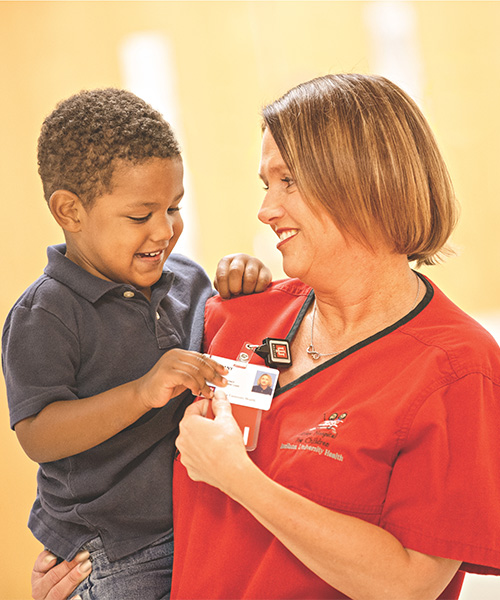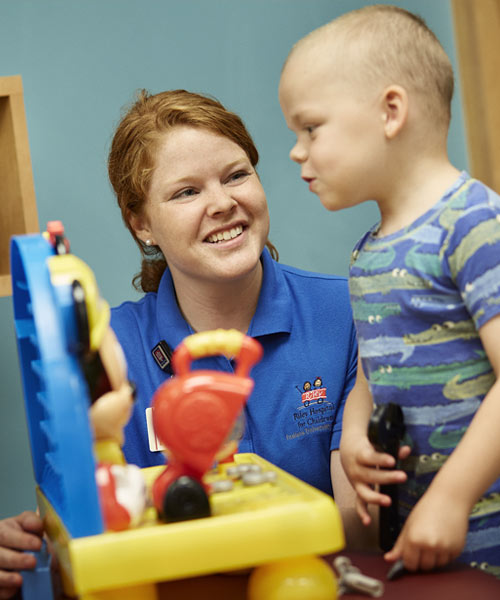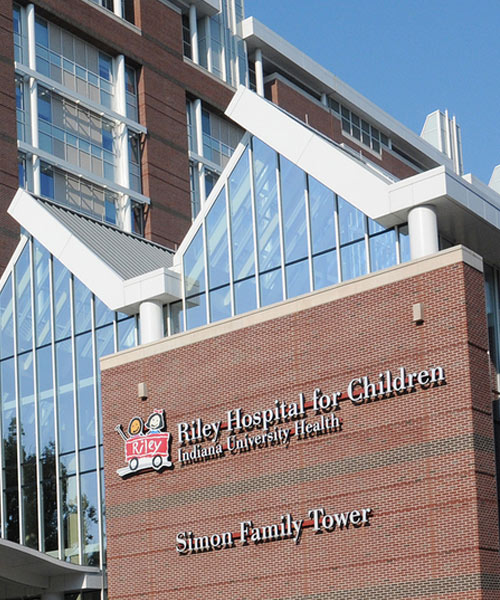Enterovirus D68: What You Need to Know
By now, you’ve probably heard about it: the rare strain of a common virus believed to be behind the spike in kids being sent to the hospital for moderate to severe respiratory infections—enterovirus D68.
But there’s no need to panic.
Infectious disease experts with Riley at IU Health answer pressing questions about the virus and how best to respond and prevent it. They also explain what steps the hospital is taking to keep medically fragile patients safe—including restricting visitors to the Neonatal Intensive Care Unit (NICU).
Q: What is enterovirus D68?
Enteroviruses are very common, affecting an estimated 10 to 15 million people annually, causing mild to moderate cold-like symptoms or none at all. They typically occur during late summer and early fall. Enterovirus D68, is one of about 100 different strains of the bug. It mainly affects babies, children and teenagers, triggering flu-like symptoms or respiratory symptoms, including wheezing. Though this is a less common strain, enterovirus D68 has been around for more than half a century.
Q: Why am I hearing so much about it?
Midwestern states are being hit particularly hard, with many children’s hospitals reporting an uptick in suspected cases of enterovirus D68 infection. While the full extent of the disease spread has yet to be confirmed in Indiana, the virus is suspected to be behind an increase in Emergency department visits and hospitalizations at Riley at IU Health and beyond.
Q: What are the symptoms and how does it spread?
The virus spreads through close contact, when infected respiratory droplets and secretions pass from person to person. Symptoms—if present—can range from mild to severe, mimicking a bad cold or wintertime flu. This particular strain of enterovirus is causing more wheezing and coughing than we typically see with its closely related cousins. Other signs of infection can include: runny nose, headache, body aches and congestion. In severe cases, there can be difficulty breathing and fever.
Q: How serious a threat is it to my child?
As with most viral infections, there is no vaccine to prevent it or medication to cure enterovirus D68. The good news? The body will typically fight off the bug on its own—with time. Most cases of suspected enterovirus D68 are actually best managed at home, with guidance from a primary care physician and help from family to ensure kids get enough rest, stay hydrated and have access to over-the-counter medicines to keep pain and fever at bay. Only a small percentage of the kids being brought to the Emergency department with suspected cases actually require a hospital stay.
Q: When should I take my child to the emergency department?
The majority of these infections are not medical emergencies. However; if your child is having extreme difficulty breathing—using the belly to breathe, breathing excessively fast or sucking in so hard that the chest sinks in, for example—that constitutes an emergency. If possible, it’s always best to first check in with your child’s primary care doctor, who is well-versed in your child’s medical history and health baseline, for guidance. If your primary care physician is not available for advice, visit your closest emergency room.
Q: What if my child has asthma or another underlying respiratory condition?
Viruses of this variety can trigger asthma flare-ups or worsening of other underlying respiratory conditions. If your child has asthma, chances are you’re extremely aware of the signs that something is not right. As this and other viruses continue to circulate this season, check in with your child’s physician to ensure you have a solid game-plan in place.
Q: How can I prevent my child from coming down with enterovirus D68?
While there is no vaccine to prevent infection, small steps can go a long way toward keeping your child healthy. Just as we recommend during flu and cold season:
- Avoid close contact with others who are sick.
- Encourage frequent and good hand-washing with soap and water. Friction is more important than duration. Ensure kids lather up well, working soap between fingers and up to the wrist. In a pinch, hand sanitizer can also help but is no substitute for old-fashioned soap and water.
- If your child does fall ill, it’s important to keep him or her home until she recovers to help other kids stay healthy. Consult with your physician regarding specific recommendations for your child.
Q: Is Riley at IU Health putting visitor restrictions in place?
We know how much visitors mean to our patients and their family members. However, as enterovirus D68 continues to circulate and as respiratory viral season begins, we must keep our medically fragile patients safe.
Effective Monday, Sept. 15, 2014:
- No visitors younger than 18 (except parents) or visitors who are ill will be able to visit the Riley at IU Health Neonatal Intensive Care Unit (NICU). Other IU Health facilities planning to limit NICU visitors include IU Health Methodist, North, West, Bloomington and Arnett and Ball Memorial hospitals.
- We are encouraging families in other areas of the hospital to limit visitors to only those essential to the care and well-being of patients. Guests, volunteers and employees are also asked to please stay home if they are experiencing flu-like symptoms.
[IU Health now offers Same-Day Primary Care Appointments. Call 844.8.IUHEALTH to schedule a visit.]
Media Contact
Lindsay Lyon, llyon1@iuhealth.org 317.962.5500




